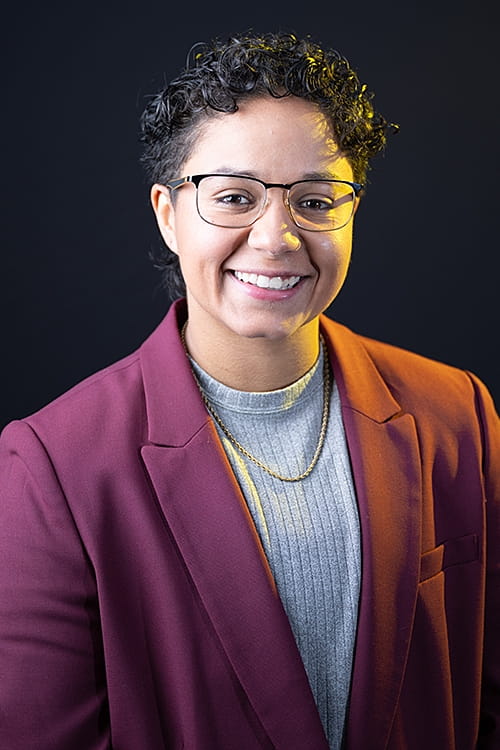
Lucinda Williamson, PhD student, biomedical engineering
Protects joint health after injury
“Lucinda is a model student in the biomedical engineering program. She is making great progress on her research and has presented at multiple conferences.” -Edward Sander, associate professor, biomedical engineering
Hometown: Aurora, Illinois
Faculty mentor/advisor: Don Anderson, PhD, professor, orthopedics and rehabilitation, Carver College of Medicine
What is your degree program and expected graduate date? Pursuing my PhD in biomedical engineering with an expected graduation date of 2024
Please describe your research: I conduct research in the Orthopedic Biomechanics Lab at Iowa. I study the biomechanics of the lower extremities with a focus on the ankle and knee joints. These joints are commonly injured, and my research focuses on how one significant injury like a severe sprain or articular fracture impacts that joint over time. I use patient-specific computational models to quantitatively assess how a joint injury influences the onset of post-traumatic osteoarthritis by looking at the contact stresses found on the surfaces of the joint of interest.
In simple terms, why does this research matter? This research is critical because it has a direct impact on patient care. The data that comes from these studies helps orthopedic surgeons make more informed surgical decisions and helps them assess how well they are treating patients. Current clinical frameworks and diagnostic tools depend on subjective methods where this one relies on objective data. Another application for this work is aimed at maintaining joint health even after a severe injury. Our computational framework is currently being tested to evaluate the efficacy of various custom ankle orthotics or braces. On a broader scale, biomechanics extends not just into patient healthcare but also fields like athletic/sports performance, ergonomics, and product design.
How soon after starting at the University of Iowa were you able to participate in research? I attended Iowa as an undergraduate and participated in research. After graduation, I spent my gap year working as a research assistant in the same lab I am currently involved in. It was during this time that I solidified my desire to go to grad school. I have been involved and participating in research efforts since.
How has being involved in research made you more successful at the University of Iowa? Getting involved in research has helped open opportunities and collaborations across campus that give me the space to be creative while also challenging me intellectually. One of the most prominent things that has come from being involved in research is the supportive network I have been afforded. The research landscape is filled with scholars that want to help you build a strong foundation and see you succeed.
What are your career goals and/or plans after graduation? I plan to pursue a career based in academia. After graduation I will begin looking for post-doc positions at R1 or R2 institutions. My goal for conducting my own research is to combine my experience in orthopedic research and 3D printing technology to advance patient-specific healthcare. One large challenge the comes with 3D printing is the large upfront cost of printers, along with the time, money, and expertise of using such technology which makes it hard to implement into the current clinical setting. I would like my research to address that problem and increase access to patient-specific healthcare to all people.
Banner location: not on display—
